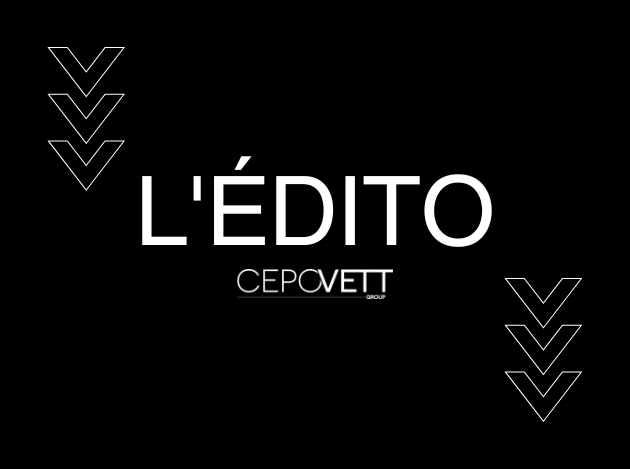The Covid-19 transforms our relationships with others
24 May 2023Consumption in the test of sobriety
24 May 2023Reinventing yourself post Covid
Since March the Covid-19 crisis has turned our world upside down. As France embarks on a long-term recovery plan, this is an opportunity to rethink the way we work, live and consume. In a context of crisis, CSR provides concrete solutions and paves the way for the transformation towards a responsible, inclusive and sustainable economy.
Nearly five months after the end of the lockdown, the beginning of the school year in September is the test of the economy's return to normalcy. If the start of the school year confirms the return to school of future generations, the spectre of Covid-19 still looms in everyone's mind. This dreaded virus, a real headache in the public sphere, brings its share of health constraints, administrative red tape and other psychological obstacles.
Behind the slowdown in growth and the upcoming bankruptcy filings, a new world is taking shape: the post-pandemic world where companies will have to reinvent themselves, willingly or not. Since nature has caught up with the economy, reconciling the issues of "people, planet, profit" has become a must in this new world. The pandemic is a gas pedal of change and it is now that we must dare to reinvent ourselves to accelerate this transformation towards more ethics. Nothing will ever be the same again, future generations are counting on us.
Accelerating the post-Covid recovery
September sounded the death knell for the recovery. The recovery plan announced on Thursday, March 3, with its 100 billion euros to support the French economy over the next three years, will lay the foundations for "the France of 2030". Future-oriented investments coupled with solidarity-based aid should force us to rethink, individually and collectively, the entire model, particularly our way of producing, working and consuming.
In a context of decline, CSR is, more than ever, an added value to the functioning of companies to adapt and last. This is evidenced by the 30 billion euros allocated to thegreen economy and to actions in favor of the circular economy and biodiversity (11 billion for transportation, 7 billion for building renovation, including 4 billion for public buildings, and 2 billion for Ma Prime Renov', the energy renovation aid for housing). Proof of the impact of an ecological awareness on economic issues.
"This pandemic is a gas pedal of change, we must dare to reinvent ourselves to accelerate this transformation towards more ethics"
Facing our ecological challenges
Moreover, the crisis has highlighted the urgency of digitizing processes and the world of work. Containment has seen an explosion in home delivery, telecommuting and online commerce. Players who were not sufficiently committed to the digital path did not resist the crisis and its health constraints.
In the same way, companies that remain deaf to issues of ethics, responsibility and sustainability will come up against our society's desire for change. Consumers have never been so demanding for traceability, transparency and fair prices. More vigilant about the impact of their actions and their purchasing actions on the planet, they are more interested in essential products, short circuits and eco-responsible manufacturing methods. Hence the interest in producing and selling differently. Because if the will to participate in a better world is there, the economic equation remains to be demonstrated.
Reconciling the economic equation
Making sustainable development/CSR economically acceptable is the main challenge for companies and for our world in general. This requires a change in mentality and consumption habits. Buy less but better fresh and unprocessed products. Enable companies to engage in eco-design by ensuring a decent and sustainable income in the long term. A responsible approach relies on the commitment of everyone, at all levels, from the producer to the consumer, including, of course, the distributor. No doubt, in the near future, regulatory constraints will help accelerate the ecological transition by imposing quotas on companies (carbon, energy, water, etc.) and expanded responsibility obligations, in particular the objective of carbon neutrality within 10 years.
Brought to the European level, these regulations reveal the global and existential dimension of these challenges for our societies. France and its companies can no longer deny the problems of global warming, the depletion of natural resources, the degradation of biodiversity and the impact of their industries on the environment.
Future generations involved
The younger generations, in any case, do not ignore it. On the contrary. At a time when CSR is entering the age of reason, they have seized on these subjects at a disconcerting speed and, thanks to the support of digital, the internet and cell phones, they are using concrete solutions on a daily basis that they share with their communities (anti-waste applications, energy consumption, second-hand products, etc.) which are helping to accelerate the transformation of brands towards a responsible economy. There are countless young talents freshly graduated from the best business or engineering schools who show their willingness to change the world, inventors of " Tech For Good " or entrepreneurs For Good (ESS).
Ready to bet on a fairer, more inclusive and more sustainable future, to invest in the unknown with Danton's famous mantra: "Boldness, more boldness, always boldness". Indeed, boldness and above all ambition are needed to reinvent ourselves, to imagine the future and to think of other economic models. Take companies out of their short-term anxiety and end-of-year results to reconcile the present and the future through pragmatic actions. No more plans on the comet, no more great theories. The world of tomorrow is being written today and we are the actors of the change we wish to see: let's act, together and now!

